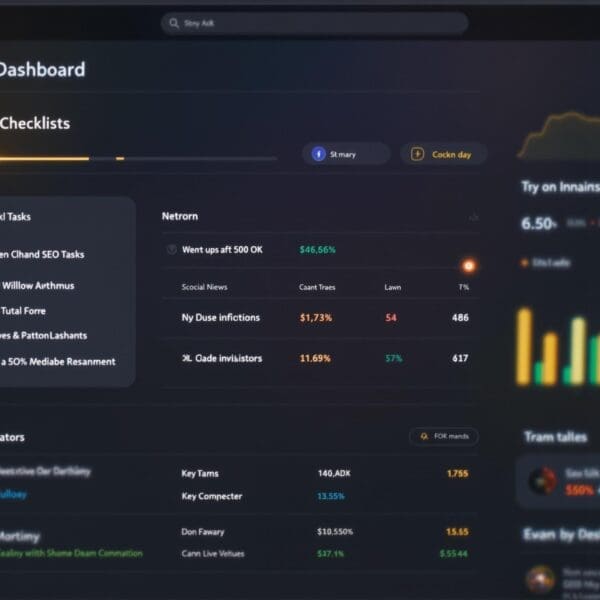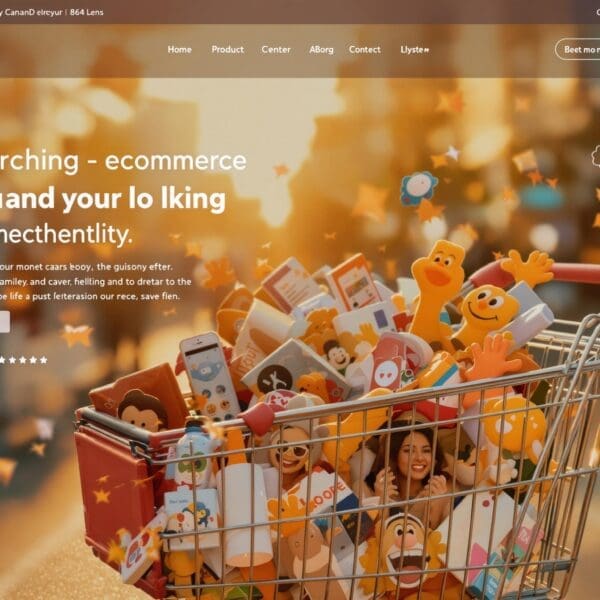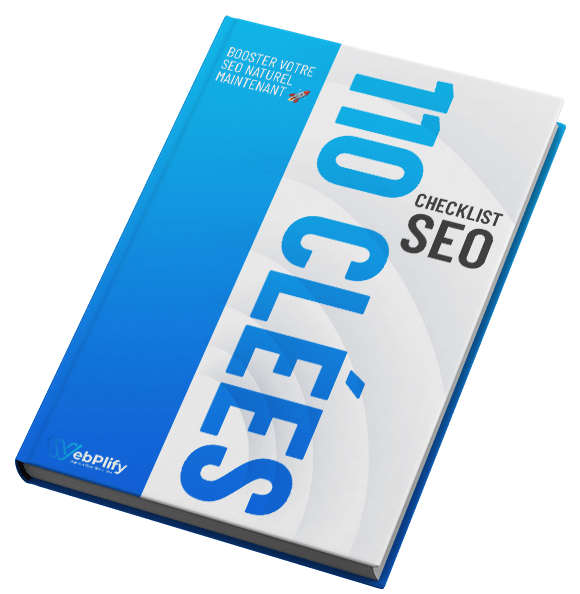✅ In brief: Best web platforms for SMBs in Quebec
Objective: Choose the right platform (showcase or e-commerce site) for your business needs and technical resources.
Skills required: WordPress requires more technical autonomy, while Shopify and Wix offer turnkey solutions.
Customization: WordPress offers maximum flexibility thanks to its thousands of plugins, ideal for small and medium-sized businesses looking for a made-to-measure site.
E-commerce: Shopify dominates when it comes to online sales, tax management, Interac payments and analytics.
Costs: WordPress = variable costs, Shopify = subscriptions + transaction fees, Wix = all-inclusive packages.
Local support: Doing business with a local expert in Quebec, such as WebPlify, makes it easier to get up and running on each platform.
Comparative table of the best web platforms for Quebec businesses
| Plateforme | Type | Avantages clés | Idéal pour | Niveau de personnalisation | SEO | Coût moyen | Support en français |
|---|---|---|---|---|---|---|---|
| WordPress | CMS Open Source | Flexibilité, plugins SEO, évolutif, conforme à la Loi 25 | PME en croissance, agences | Très élevé | Excellente | $$ (hébergement + plugins) | Oui |
| Shopify | eCommerce hébergé | Facile à utiliser, sécurité intégrée, support local | Boutiques en ligne au Québec | Moyen | Très bon | $$$ (abonnement mensuel) | Oui |
| Wix | Constructeur de site | Simple, rapide, sans code | Petits commerçants, pros indépendants | Moyen | Correct | $ à $$ | Oui |
| Squarespace | Constructeur de site | Designs élégants, marketing intégré | Créateurs, artistes, restos | Moyen | Bon | $$ | Partiel |
| Webflow | No-code avancé | Contrôle créatif total, animations, SEO propre | Startups, projets design ou techniques | Très élevé | Excellente | $$ à $$$ | Partiel |
Choosing among the best web platforms for small and medium-sized businesses in Quebec is often a balancing act between simplicity, cost and scalable functionality. This article compares WordPress, Wix and Shopify, analyzing their adaptability to the needs of Quebec businesses, from creating showcase sites to managing online stores. We decipher for you the technical, legal and financial criteria to optimize your digital presence according to your business objectives.
Table of contents
ToggleSelection criteria for Quebec SMBs
Definition of operational requirements
The choice between a showcase site and an online store depends on business objectives: digital visibility and direct transactions for the latter. As detailed in our guide to essential elements for a business website, this distinction guides platform selection.
Prior analysis of functionality requirements means prioritizing tools aligned with business strategy. For Quebec SMEs, this means assessing needs in terms of content management, e-commerce capability and multi-channel integration, while anticipating local regulatory changes.
To clearly identify your technical requirements, here are five basic questions:
- Analyze in-house skills available for technical management
- Evaluate the complexity of the e-commerce functionalities required
- Prioritize integration with existing business tools
- Verify Quebec data protection legal requirements
- Anticipate medium-term scalability needs
WordPress, Wix and Shopify: Bill 25 solutions for personal data protection in Quebec.
Technical skills assessment
Management autonomy varies significantly between self-hosted solutions (WordPress) and SaaS (Wix/Shopify), influencing operational costs.
| Platform | Maintenance | Integration |
|---|---|---|
| WordPress | Manual updates | Customizable extensions |
| Wix | Editor-managed | Predefined applications |
| Shopify | Automated | e-commerce API |
Interoperability with existing systems (accounting, CRM) is an important issue. Shopify excels in API connections, while WordPress requires specific developments to synchronize business data.
Need personalized support? Call us today for a detailed analysis of your web project.
Platform benchmarking
Flexibility and customization
Theecosystem of extensions determines the adaptability of the solutions. WordPress offers 55,000+ plugins for advanced functionality, while Wix and Shopify offer specialized application marketplaces. Technical optimization varies according to the architecture of each platform.
Predefined templates simplify startup but limit visual uniqueness. A Quebec-based SME in the retail sector might prefer WordPress for its customized design, while a startup opting for speed would choose Wix. Good web design practices reveal this compromise between standardization and differentiation.
E-commerce performance
Managing Quebec taxes (GST/QST) can be automated differently: Shopify, Wix, WordPress: can be automated differently.
To assess the effectiveness of an online store, these indicators are crucial:
- Conversion rates tailored to the local market
- Multi-channel integration with Quebec marketplaces
- French/English multilingual management
- Automatic calculation of Canada Post shipping charges
- Interac payment compatibility
- Provincial sales reporting
Shopify stands out for its built-in analytics tools, while WordPress requires the addition of add-ons for detailed tracking of sales performance.
Financial considerations
Pricing models vary significantly: WordPress involves variable costs (hosting + extensions), Wix offers turnkey packages, while Shopify combines subscription and transaction fees. As our experience with site redesigns shows, migrations between platforms often generate unforeseen additional costs.
The return on investment depends on the company’s digital maturity. A manufacturing SME will prefer Shopify for its integrated sales channel, while a service firm will opt for WordPress to control costs over the long term. Quebec government subsidies (up to $20,000) often mitigate the initial investment.
Need a customized analysis? Call us today to optimize your digital budget.
Resources and support
Localized technical support
French-language support is a key factor in the adoption of these platforms. Shopify and Wix offer telephone support in Quebec, while WordPress relies on a network of certified agencies like our digital marketing expertise for customized support.
Quebec boasts an ecosystem of specialized partners: Globalia for Shopify, JB Impact for Wix, and Libéo for WordPress. These local experts are well versed in the province’s regulatory and commercial specificities.
Training and documentation
The platforms offer resources tailored to beginners: video tutorials for Wix, practical guides for Shopify, and an active French-speaking community for WordPress. Programs subsidized by the Quebec government provide easy access to training.
The PME en ligne program of the Ministère de l’Économie du Québec finances up to 75% of digital training costs. This assistance enables managers to quickly master content management and business analysis tools.
Choosing a web platform for a Quebec-based SME depends onbalancing autonomy, budget and legalcompliance. WordPress excels in customization, Wix in ease of use, Shopify in e-commerce performance. By assessing your operational needs and consulting local resources, you’ll position your business to take full advantage of Quebec’s digital opportunities.
Frequently asked questions about the best web platforms for SMEs (FAQ)
What are the hidden costs of each platform?
Hidden costs vary considerably between WordPress, Wix and Shopify. With WordPress, although the software is free, you need to budget forhosting, domain name, premium themes and plugins. Maintenance and security can also incur additional costs, as can custom development for specific features.
Wix requires a paid subscription to remove ads and use a custom domain name, with additional costs for personalized e-mail addresses and certain third-party applications. Shopify, on the other hand, can involve transaction fees if you don’t use Shopify Payments, as well as monthly costs for apps and one-off charges for premium themes. For larger companies, Shopify Plus represents a substantial monthly investment.
How do I migrate from one platform to another?
Migrating from one web platform to another is a process that is highly dependent on the platforms involved. For example, migrating from Wix to WordPress involves creating a new WordPress site, manually exporting content (Wix being a closed platform) and recreating the design. Migrating from WordPress to Shopify involves exporting product data to a CSV file and importing it into Shopify, sometimes using third-party applications for blog posts and other data.
Whatever the migration, careful planning is essential to minimize the impact on SEO and user experience. It’s crucial to set up 301 redirects to redirect old URLs to new ones, and to test the new platform before it goes live. For complex migrations, calling in experts is strongly recommended.
Which web platform is the most scalable over the long term?
WordPress and Shopify are generally considered to be the most scalable long-term platforms for a Quebec-based SME. WordPress offers great flexibility thanks to its vast ecosystem of plugins and themes, enabling extensive customization and adaptation to specific business needs. Shopify, meanwhile, is specifically designed to handle the growth of e-commerce businesses, offering unlimited bandwidth and storage.
Although Wix is an attractive option for small businesses, it can plateau in terms of functionality and long-term scalability. The choice of the ideal platform will therefore depend on the specific needs of the SME and its growth objectives.
How do you optimize SEO for each platform?
SEO optimization varies according to platform. For WordPress, the use of popular SEO plugins such as Yoast SEO or Rank Math is crucial for managing titles, meta descriptions and XML sitemaps. It’s also important to add original text to each page and choose an SEO-friendly theme. For Wix, use the Wix SEO checklist and SEO wizard to identify potential problems and optimize content.
For Shopify, optimization means adding metadata, keywords and alternative text, as well as using SEO applications available from the Shopify App Store. In all cases, keyword research and an effective content strategy are essential.
What are the alternatives to WordPress, Wix and Shopify for Quebec SMEs?
Several alternatives to WordPress, Wix and Shopify exist for Quebec SMEs. Squarespace is an all-in-one solution with attractive templates, particularly suited to artists and small businesses. BigCommerce is ideal for medium-sized to large businesses and B2B commerce. Weebly is suitable for small businesses with basic e-commerce needs.
Other options include Ecwid, which makes it easy to add sales functionality to an existing platform, and Webflow, which offers a specialized approach for specific needs. The choice of the ideal platform will depend on the specific needs of each Quebec SME.
How do you manage data security on each platform?
Data security management differs depending on the platform. On WordPress, it’s crucial to regularly update the WordPress core, themes and plugins, and to install a security plugin. On Wix, all sites use HTTPS and SSL protocols, and databases containing sensitive information are encrypted.
Shopify is certified to Level 1 of the PCI DSS standardfor the secure processing of credit card payments. It’s important to protect your account against the risk of phishing. Each platform offers specific security measures, but it’s essential for SMEs to take proactive steps to protect their data.
What impact will Bill 25 have on each platform?
The Law 25 is having a significant impact on WordPress, Wix and Shopify, forcing Quebec-based companies to comply with stringent guidelines concerning the management of personal data. For WordPress, this meansusing plugins to ensure compliance and obtaining clear consent for each data collection. For Wix, it requires a privacy policy that complies with Bill 25 and clearly informs customers about how their data is collected and used.
For Shopify, it’s important to check that the privacy policy is up to date and covers all the criteria required by Law 25, and to obtain user consent before collecting and using personal data. In general, Law 25 requires companies to appoint a privacy officer and post his/her contact details on their website.















